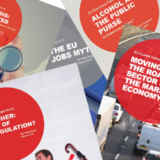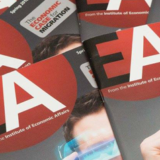Reshaping the UK's Higher Education for the post-pandemic world
...and the lessons we can learn
The Dubious Case for Free School Breakfasts
Embrace private sector education in post-conflict states to improve standards
Many families now spend a third of their net income on childcare
New research from the IEA outlines the serious shortfalls of the REF scheme as a way to fund higher education.
Levy on graduate earnings should replace state funding of universities




